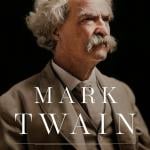GODSTUFF
GOLDEN COMPASS DOESN’T POINT TO WAR ON CHRISTMAS
Tis the season to be jolly, not paranoid, kids.
In addition to (hopefully) ushering in a period of peace and goodwill toward men, in recent years Advent also has marked a surge in frenzied, the-sky-is-falling warnings about the supposed “War on Christmas.”
Whether it’s retailers allegedly “taking the Christ out of Christmas” by replacing the first syllable of Christmas with an “X” — which, by the way, originated about 1,000 years ago from the Greek letter chi written as X, as a traditional symbol for “Christ” — or outrage over the fact that the clerk at the Gap says “happy holidays” rather than “merry Christmas,” there always seems to be something perceived by certain quarters as menacing the Baby Jesus on the eve of his birthday.
The signs, these nervous folks tell us, are all around. Take the mall, for instance. One town crier has issued a list titled “Friend or Foe 2007” where merchants from Amazon.com and Home Depot to Bed Bath and Beyond and Macy’s are listed as “Naughty” or “Nice” depending on whether they mention Christmas explicitly in seasonal advertising campaigns.
“If you find a local store that openly celebrates Christmas, be sure to thank the manager!” the Liberty Counsel says. Because nothing says “happy birthday, Jesus” like free commerce.
Of course, the greatest threat to Christmas this year is a movie. A children’s film, no less, the most nefarious of all holiday-related hazards.
“The Golden Compass” is a fantasy film, complete with shape-shifting talking animals and armored polar bears, that follows the adventures of the young female protagonist, Lyra, as she battles evil to rescue her kidnapped friend, Roger, from a powerful vaguely religious cabal called the Magisterium that amputates children’s souls. The story is based on a trilogy of books known as “His Dark Materials,” written by British author Philip Pullman, who is, as every news report I’ve seen about the film mentions, an “avowed atheist.”
http://www.youtube.com/watch?v=ctquShtMwNo&rel=1I haven’t read Pullman’s books, which by all accounts include explicit anti-religious, and anti-Catholic in particular, themes. I have, however, seen the film and if those themes were present, they flew right over my head, not unlike the heroic witches who prophesied the birth of Lyra, a child who would someday decide the fate of the world.
The movie is a jumble of heretofore-unknown characters and existential ideas that don’t quite hold together and that are entirely lost amid the fury of big-budget special effects. The message of “The Golden Compass,” if there is one in its celluloid incarnation, was lost on me. And I would venture a guess that any child who would see the film — and with its PG-13 rating for violence, no young child should — would miss the point, whatever it is, as well.
Even the director of the U.S. Conference of Catholic Bishops Office for Film & Broadcasting didn’t find theological fault with the film, saying the heroism and self-sacrifice portrayed by the protagonist “provide appropriate moral lessons for viewers.” Earlier this week, however, that largely positive review was removed from the USCCB’s Web site without comment. Hmmmm . . .
Still, even before it was released in theaters last week, several Christian organizations issued warnings about “The Golden Compass,” as a sugarcoated primer for anti-religious ideas that would surely lure children to atheism. The Catholic League, a Catholic anti-defamation group, called for a boycott of the film and produced a 23-page treatise deconstructing its moral threats.
Frankly, were it not for the public outcry from Christian groups, “The Golden Compass” would not have hit my radar and I certainly would not have paid $7 to see it.
I truly don’t understand why some Christians feel so threatened by fictional stories — whether they’re told in books, video games, on television or in the movies. If they believe the Christmas story told in the Bible, whence comes their fear?
The Bible tells us that in order to love a broken world back to wholeness, an omnipotent God decides to come to Earth, not as a king or a great warrior, but in the form of a helpless infant born in a stable to an unwed teenage mother from an oppressed religious and ethnic group. There are signs and wonders announcing the Christ child’s birth — miraculous movement in the heavens, angels appearing to shepherds in fields, three mystical magi traveling from the East with exotic gifts of gold, frankincense and myrrh, and prophesies foretold and fulfilled. Good triumphs over evil and love over hate, all through the birth of one baby boy in a backwater town in the Middle East more than 2,000 years ago.
I defy Hollywood to come up with a more powerful, enduring tale than that one.
Christians would be better served telling and retelling the real Christmas story, without wasting time on brickbats and boycotts. Make big-budget films about it, write powerful books, make beautiful music and create enduring artwork that reflects the spirit of that story, the greatest ever told.
Jesus didn’t get defensive about ideas and stories that paled in comparison to the one he was telling. His followers shouldn’t be, either.
So, next year, when December rolls around and nervous Nellies begin shrieking about the latest Operation Secular Menace threatening to upend Christmas and its true meaning, please stick your fingers in your ears and repeat after me: Fa la la la la la la la la.















